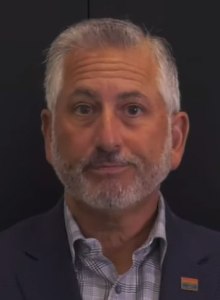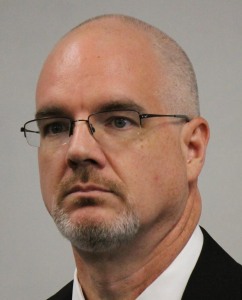“We will enforce this,” St. Petersburg mayor Rick Kriseman said in a video posted to the city’s Youtube channel yesterday evening. “We will disperse crowds.” The “this” Kriseman said he would enforce is his executive order on Covid-19 , which is the official name for the coronavirus currently causing havoc around the world.
Sections 3 and 4 of Kriseman’s executive order claims that those sections are “pursuant to City Code Section 427(h).” This is a subsection of section 427 of the city code that was added just last week. The new subsection (h) says that “the Mayor may close places of public assemblage.”

However, subsection (h) doesn’t grant Kriseman the power to order reduced occupancy at those places of public assemblage, nor does it grant him the power to limit the number of participants at events/gathering. Two of the three orders in Kriseman’s executive order do just that.
Clearly, the city was aware of the distinction between “closing” and ordering “reduced occupancy” because subsection (g) under “Findings” in the executive order says the following:
“Rather than fully close certain places of public assemblage within the city to promote the social distancing recommended by the CDC, reducing the allowable occupancy of those places at this time will reduce the spread of COVID-19 within the City and is, therefore, necessary to protect the public interest.”
However, findings can never modify the powers actually granted to the mayor, and the only power granted to the mayor was to order “places of public assemblage” like bars and restaurants CLOSED.
It seems Kriseman didn’t want to order bars and restaurants closed, aselected officials in Houston, Los Angeles County and governors of states like Colorado, Maryland and several other states have done. Kriseman has many political supporters among bar and restaurant owners and employees in the city.
Neither the executive order nor the new subsection 427(h) appear on the city’s Covid-19 page. The mayor’s proclamation declaring a state of emergency on March 12th does appear on that page, along with an order on March 13th by the mayor invoking certain emergency powers.

After providing The Guardian with a copy of the executive order and of the new subsection (h) of section 427, city communications director Ben Kirby was not immediately available for further comment yesterday evening.
In the absence of further information, it is unclear at this time why Kriseman and the city believe their municipal government has the authority to infringe on the First Amendment right of citizens to “assemble peaceably,” or why Kriseman thinks he may unilaterally reduce occupancy below what the fire code requires.
We have invited Kirby and the city to provide further comment and will update the article if we receive any.
Inquiries to city attorney Jacqueline Kovilaritch received no immediate response. The city attorney is responsible for drafting all legal documents, including ordinances and executive orders.
Kriseman appointed Kovilaritch as the city’s first female city attorney in 2015, and has called her “exceptional.” In 2017, Kriseman signed an executive order on sustainability called “Sustainable St. Petersburg.” which didn’t bother to cite any legal authority whatsoever for that particular executive order. Kriseman’s latest executive order is numbered as “2020-03,” whereas the executive order dated March 13th is not.
Kriseman’s announcement of his Covid-19 executive order was made on Youtube, conveniently with no questions from the press. The video is called a “directive” in the description, and is not described as an “order.” Kriseman himself refers to the executive order as a “directive” in the video.
 The city’s vagueness of whether the executive order is a request, an order, or a bit of both, is further evidence that the city knows it’s on shaky legal ground in two thirds of what the executive order actually orders.
The city’s vagueness of whether the executive order is a request, an order, or a bit of both, is further evidence that the city knows it’s on shaky legal ground in two thirds of what the executive order actually orders.
With his authoritarian Covid-19 executive order, Kriseman may earn the nickname “Alexander Haig.” Or perhaps just “Benito M” for brevity’s sake.
As for “Covid Kovilaritch,” the derogatory nicknames suggest themselves.
As always….the Guardian reports and our readers decide. Like our Facebook page to find out when we publish articles.
